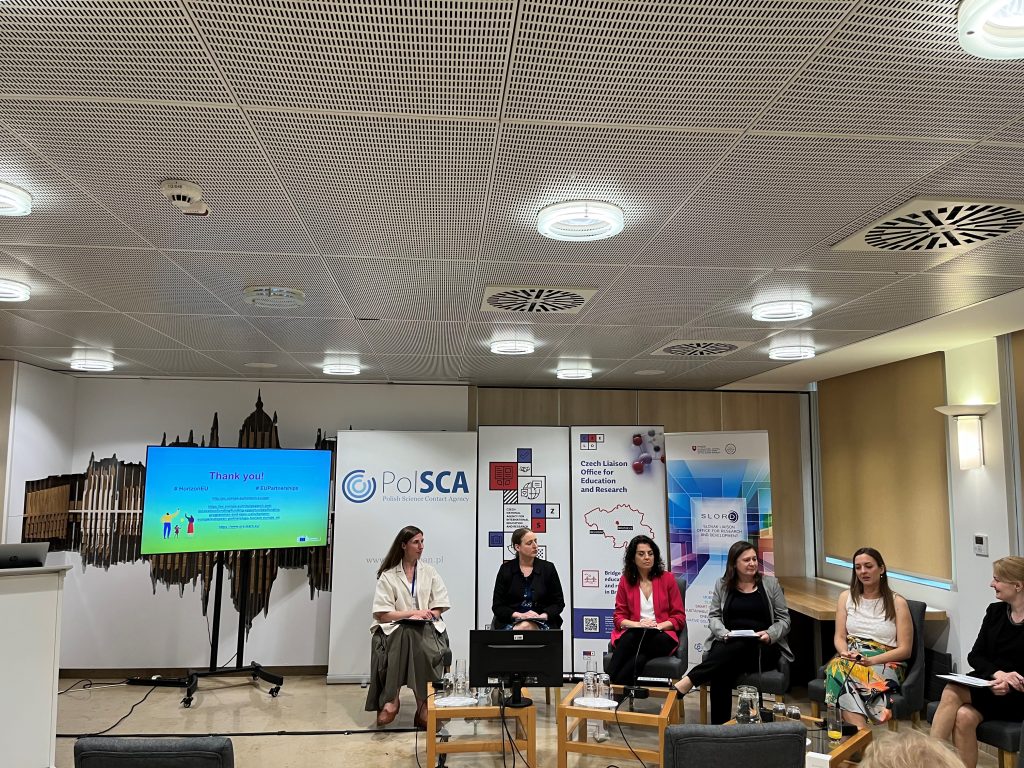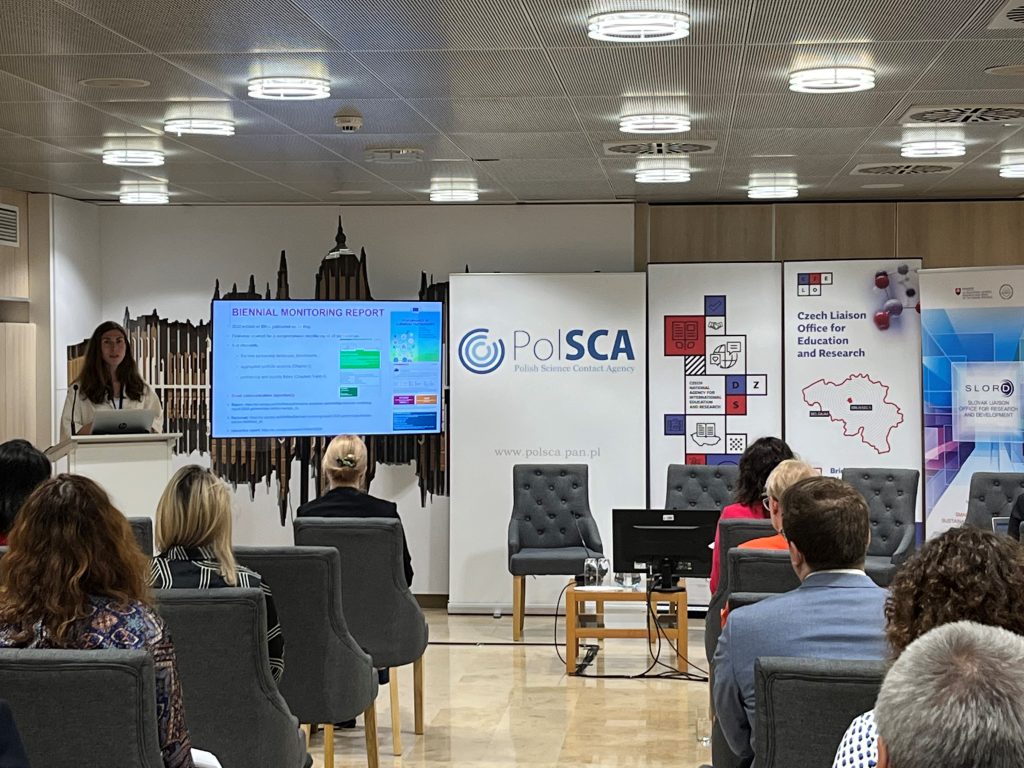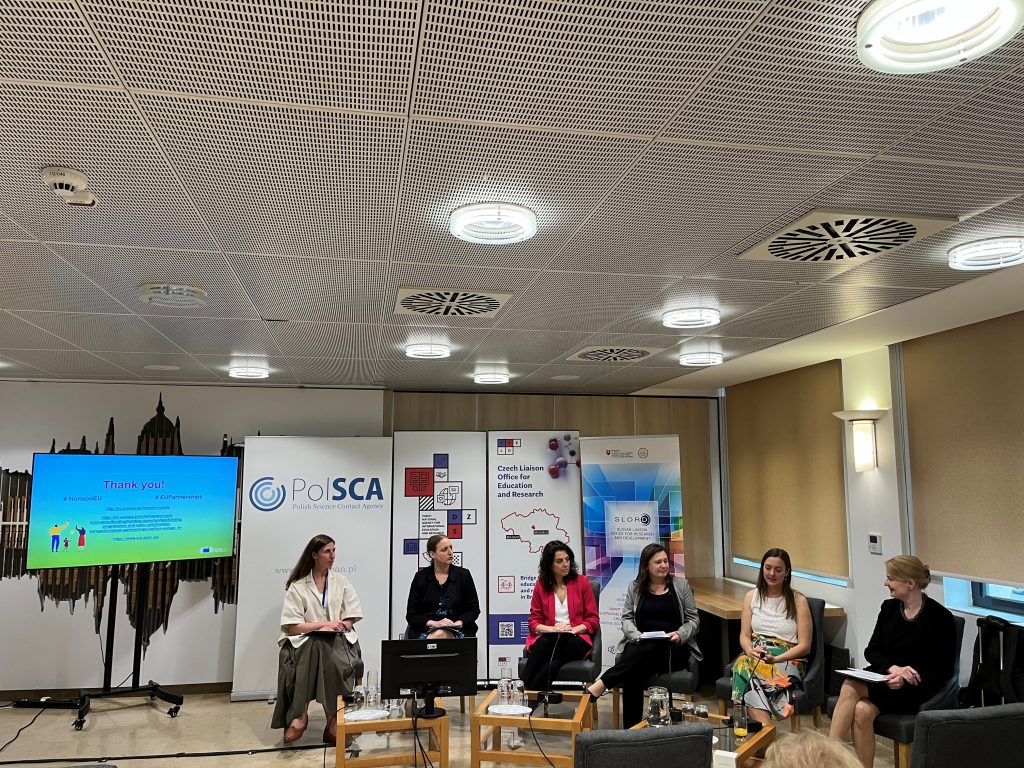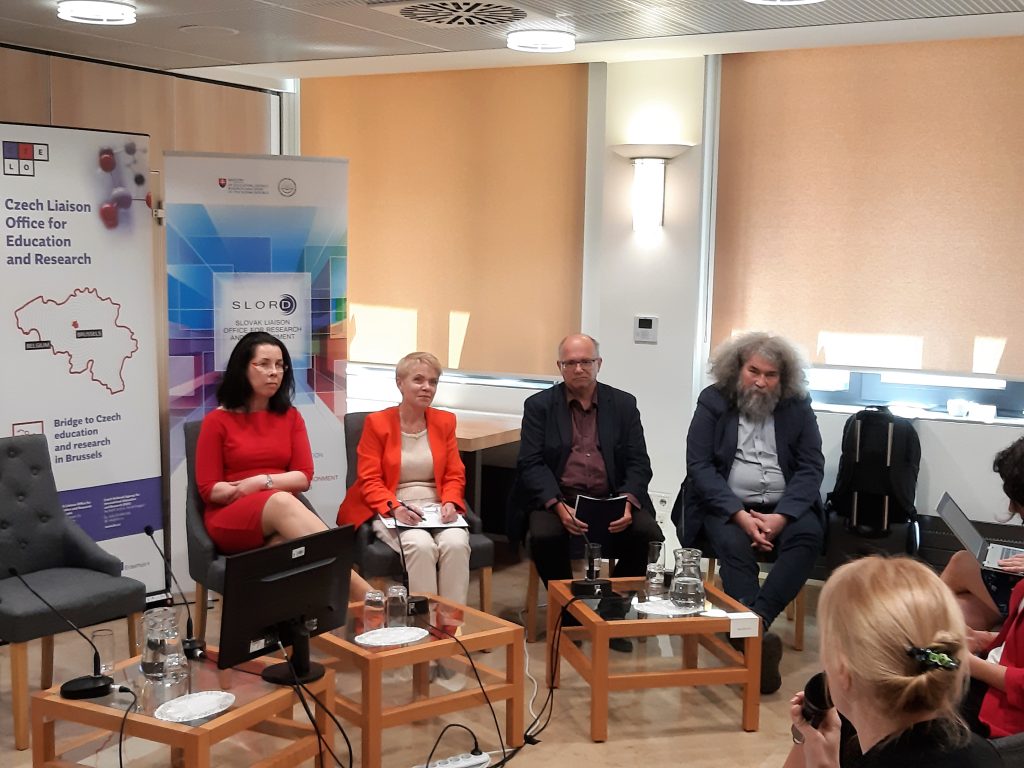The National Research, Development and Innovation Office of Hungary (NRDIO) together with the Czech Liaison Office for Education & Research (CZELO), the Polish Science Contact Agency of the Polish Academy of Sciences (PolSCA) and the Slovak Liaison Office for Research and Development (SLORD) organised a conference about the benefits and challenges of co-funded partnerships on 13 June 2022 at the premises of the Hungarian Permanent Representation. The well-attended event was also available for online participants.

After the welcoming remarks of the Deputy Permanent Representative, Ambassador Extraordinary and Plenipotentiary of Hungary to the EU, His Excellency Gábor Baranyai, the key-note presentation of Maria Leek from the European Commission not only focused on the recently published biannual monitoring report of partnerships but also on the future of the strategic planning process. The policy panel has addressed topics like the added value of participation in partnerships, the difficulties of prioritization, the necessity of synergies, commitment and mirror groups for partnerships on the national level. Ms. Leek reported about the launch of Mutual Learning Exercises in order to help sharing good practices and to find joint solutions for such challenges like the exit strategies of partnerships. The Polish perspective was presented in this panel by Ewa Kocińska-Lange, Director of the Brussels Office of the National Centre for Research and Development – Business & Science Poland.
As a second key-note, Margareta Olson (European Commission) has presented in the scientific panel the strategic research and innovation agenda (SRIA) setting process. The four scientists from the V4 countries have not only presented their scientific achievements linked to partnerships but also highlighted the importance of support staff when understanding and applying for partnership-related calls, the necessity of personal commitment, coordination skills and the need for scientists, who are able and ready to deal with policy documents. Poland was here represented by Joanna Przedrzymirska-Ziółkowska, Deputy Director for Organization and Development from the Institute of Oceanology of the Polish Academy of Sciences in Sopot.
In his final remarks, Barna Kovács, Secretary General of the BIOEAST initiative also highlighted the need for support structures and the possible role of BIOEAST working groups in the preparation of partnership SRIAs and national participation.
Link to the video recording of the conference.






